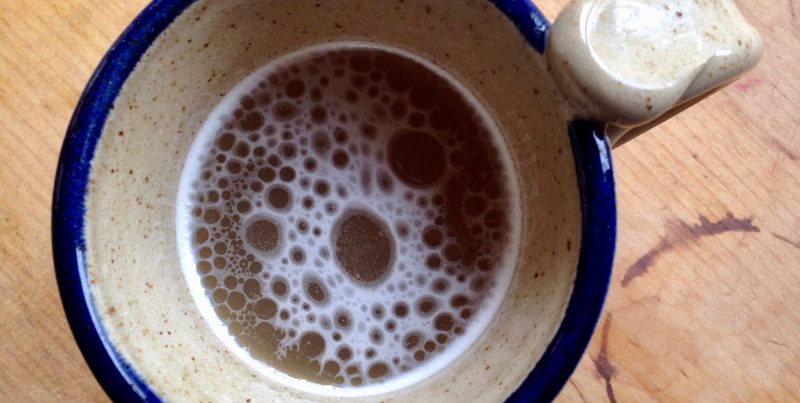After a long, hot, ridiculous humid summer, most of us rejoice the crisp, drier weather of autumn and forthcoming winter. Our skin, however, does not. Autumn brings the energy of dry, wind, and air, which can irritate people who deal with dryness.
Are You Dry?
In Ayurveda (the ancient healing system from India), the dosha (constitution or body type) most associated with dryness (as well as cold and airiness) is "vata." Vata people tend to be thin-framed and buzz around like hummingbirds, full of creativity and vision. Out of balance, vata folks can get incredibly dry, tense, anxious, with dry skin, with changeable moods and symptoms. They can be light sleepers, easily affected by stress, and sometimes prone to GI distress. Autumn offers similar cold, airy, dry energetics, which can exacerbate vata easily.
General signs of dryness include...
- Dry skin, hair
- Cracks or fissures in the skin
- Rashes, dermatitis, eczema
- Brittle hair, nails
- Frequent sore throat
- Dry mucus membranes
- You have to pick your nose because snot isn't fluid enough to blow out (thanks to herbalist jim mcdonald for this tip/visual!)
- Digestive distress, especially constipation, intestinal discomfort as food moves through
- Dry tongue, may even be withered
- Dry mouth
- Frequently thirsty, easily dehydrated
- Symptoms get worse in dry climates or seasons
Tension ("Wind" in traditional Chinese medicine systems) and connective tissue weakness often coincide with dryness.
Tips for Moisturizing the Dry
Improving moisture in the body -- externally and internally -- can help pacify dryness and vata, easing literal dryness of skin and mucus membranes and also an out of balance vata dosha/constitution. There are a handful of ways to do this, and usually a combination works best.
Hydrate with Water
Drink ample water, especially with electrolytes and a little fat (or perhaps some honey, if you're a tea drinker) to help you hold on to it. Warm and room temperature water is preferred, especially in cold seasons, climates, or constitutions. Bone broth/soup stock works exceptionally well for this, but so will vegetable broth, soup, water, and tea. A light pinch of unrefined salt (if you're not hypertensive/salt sensitive) or commercial electrolyte mix helps you hold on to plain water. Aim for at least half your body weight in ounces. So, a 150-pound person should aim for 75 ounces of fluid from water or similar sources.
Include Healing Fats In the Diet
Small amounts of healing fats in the diet will incorporate themselves into your cell lining, skin, and mucus membranes to help improve connective tissue integrity and lubrication. You don't need to go nuts here (I'm not talking bulletproof coffee with a heaping tablespoon of coconut oil), especially since fats can also be hard to digest and irritate people with sensitive gallbladders. Broth and stock, again, can be useful -- simply sipping them soothes dry throats, too. Warm golden milk made with whole cow's milk or almond milk and turmeric can soothe inflammation and dryness -- I like to add some honey and a pinch of cardamom, nutmeg, and black pepper.
Omega 3s from fish oil from cold water wild fatty fish should be consumed regularly in food (best) or supplement (I like Nordic Naturals products). Ideal fish include wild salmon, trout, sardines, herring/kippers, mackerel (small ones, not king), anchovies (the sardine-like style, not heavily processed/salted), and sablefish/black cod. Vegetarian omega 3s are best sourced from flax seed oil (refrigerated liquid -- I prefer Barlean's brand), although it's must less concentrated and more difficult for the body to utilize. That said, flax oil makes decent salad dressings and can be drizzled on food. Never cook it, and watch for rancidity. If your fish or flax oil is fishy and makes you burp a lot, it's probably rancid, which is not good for you -- both go rancid very quickly, especially flax. Hemp, chia, purslane, and eggs from poultry fed omega-rich feed are also good sources of omega 3s and other omegas (like 6s and 9s).
Healthy fats from olives/olive oil, avocados, nuts, seeds, and modest amounts of coconut can also be useful for general moisture and lubrication. Beta carotene and vitamin A from food sources improve the body's ability to lubricate as well. Winter squash is a personal favorite, especially with a drizzle of butter, ghee, or olive oil. Sweet potatoes, calendula flowers, and leafy greens are also rich in beta carotene, which the body will convert into vitamin A.
Make Sure You Can Digest Those Fats
Healthy fats can be useful speckled throughout the diet, but fats are also one of the most difficult categories of compounds to digest and assimilate. Digestion, liver, and lymph supportive herbs play a role here and can be taken with meals. Digestive bitters (Urban Moonshine has great blends, and you can also get recipes in my books and from Rosalee de la Foret, turmeric, cardamom, and other warming spices work quite nicely. If you notice that fat bothers you to eat, add these herbs in alongside them and try smaller amounts of the fatty foods.
Add in Demulcent and Mucilaginous Herbs
These herbs get a slimy or velvety consistency in water, which can help soothe and coat dry mucous membranes in your mouth, throat, and digestive tract and also help you better hold on to water. Really slimy herbs include marshmallow and slippery elm. I particularly love marshmallow because it's tasty, well tolerated, affordable, and more sustainable (and easy to grow) than elm. The powder gets so slimy in water, it resembles snot -- better to mix in something that's already slimy like applesauce, yogurt, oatmeal, or a smoothie. But I prefer less hard-core ways to use them. Cut/sifted marshmallow root can be added to tea, infused in plain water, and added to soup broths. Cold water infusions technically work best, but it doesn't really matter that much how you to it. Marshmallow leaf works great in teas, too. It's pleasant/bland on its own and mixes well with more flavorful herbs like spices or aromatic herbs like Korean licorice mint, anise hyssop, holy basil, or mint. Less slimy but still lovely and demulcent herbs include violet leaf and plantain leaf, which are also bland/pleasant and lovely in tea blends.
Oil Up Your Body
For dry skin and vata constitutions, applying oil topically and regularly can help moisturize dryness inside and out. This can be done just on the feet (apply socks afterwards) before bed and/or at the start of the day, or the whole body (head to the shower afterwards, which helps it sink in, ideally not soaping it off). Sesame, coconut, or olive oil work well here.
Additionally, calendula-infused oil (solo or in recipes like creams) helps to moisturize and ease irritations, rashes, heal the skin, and ease eczema. Comfrey improves connective tissue integrity. And Rosemary's Perfect Cream works well as a base for these recipes as a daily face and body moisturizer. Moisturizer is best applied just after a shower or washing while the skin is warm and moist -- this helps lock in the moisture and improve the ability of the moisturizer to sink into the skin. No need to overdo it. If oils rub off on clothing or sheets, they can be hard to wash off, and may get rancid over time.
Learn More
- Amanda Stanley's HerbRally Podcast on Pacifying Vata in Autumn
- Violet Monograph by jim mcdonald
- Monographs on Marshmallow by HerbRally and Rosalee de la Foret
- Vata Tips by the Chopra Center
- My Body into Balance and forthcoming Grow Your Own Herbal Remedies books offer recipes for golden milk, various broths, and tea blends

